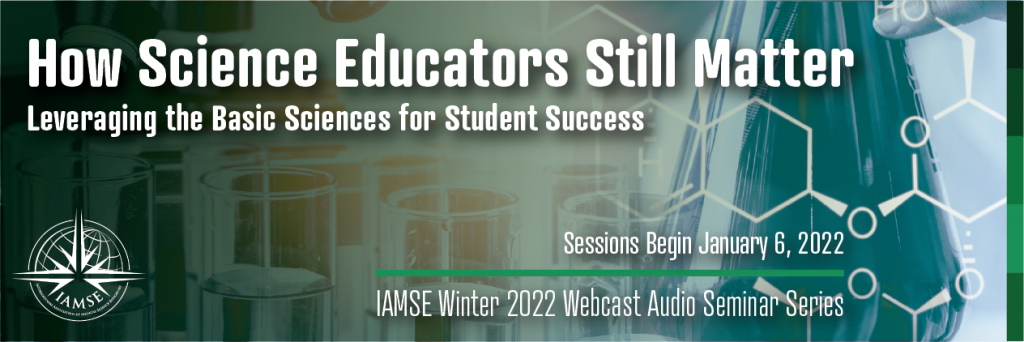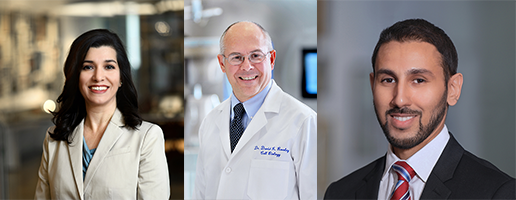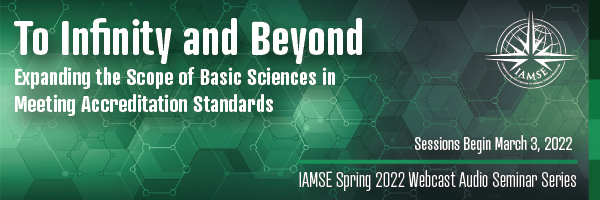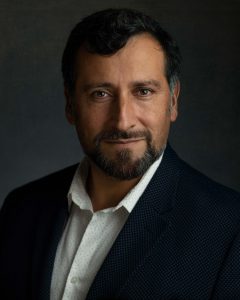
Shortening the preclinical curriculum. USMLE Step 1 and COMLEX-USA Level 1 going pass/fail. Heightened emphasis on clinical integration and professionalism within the pre-clerkship years. Amid these and other changes to preclinical medical education, medical science educators wonder, “How do the basic sciences and the educators who teach them still matter?” The IAMSE 2022 Winter webinar series will explore this question as we examine the evolving and constant roles of basic science educators. By integrating foundational disciplines throughout the medical school experience, basic science educators will continue to play vital roles in the education and development of physicians and other health care providers. The first session in the series will feature Nadia Ismail, David Rowley and Munder Zagaar from the Baylor College of Medicine (USA).
New Horizons: Restructuring the basic and
clinical sciences beyond USMLE
Presenters: Nadia Ismail, MD; David Rowley, PhD; Munder Zagaar, PharmD, PhD
Session Date & Time: January 6, 2022 at 12pm Eastern
Join the faculty from the Baylor College of Medicine in Houston, Texas to discuss our experiences with the foundational sciences curriculum in light of changes to USMLE Step 1 scoring. The webinar will cover current curricular challenges, and how our faculty are addressing the vertical integration of the foundational sciences.
Objectives for this session include discussion on the challenges and opportunities of integrating basic science education in the context of changes to USMLE Step 1 scoring, defining the roles of faculty in designing and implementing timely basic science education that underpins clinical reasoning skills (foundational thinking), and demonstrating how basic and clinical sciences can be interwoven using spiral integration and focused exposures to basic science concepts.
There is still time to register yourself or your institution for the series. Is your institution already registered? Reach out to your administrative contact to get signed up for weekly updates.
As always, IAMSE Student Members can register for the series for FREE! Email support@iamse.org for more information.
For more details on our archives of previous seasons, please visit www.iamse.org.



